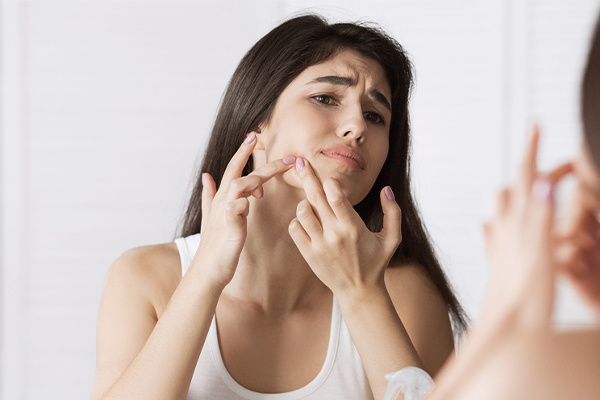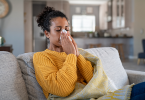Although we think of acne as kid stuff – an annoyance that vanishes along with bad trends and awkward proms – for some, pimples persevere well into adulthood. And for others, acne may not even rear its ugly head until age 30 or so.
What’s the deal?
Don’t blame the chocolate. “While many factors contribute to the information of acne, it is clear that genes play a major role, ” said Loretta Davis, MD, a dermatologist at Augusta University Health. “If your parents had troubled skin, chances are you will too.”
Acne erupts when the upper portion of the hair follicle becomes blocked with skin cells, which are dividing too fast and not shedding properly. The plugged ducts, in turn, cause sebum to build behind the blockage. The result: a “whitehead” or “comedone” in medical terms. When the pressure behind the blockage increases, the wall of the comedoe ruptures, creating inflammation or a “pimple.”
When you’re a teen, raging hormones stimulate sebum production, which seems to flip the switch and trigger acne. As an adult, bad skin can be the result of hormones, oil exposure (anything from makeup and shampoo to cooking oil), and stress.
Clearer skin today. The first step to clearer skin is prevention: identifying and avoiding anything that causes a breakout. Being careful about hygiene helps, too: Wash your face twice a day with ordinary soap and water.
If you are battling a mild case of acne, try an over-the-counter medication that contains benzoyl peroxide or salicylic acid. For more stubborn acne, your doctor may prescribe tretinoin, commonly known as Retin-A, or adapalene, also know as Differin. One formulation of adapalene is now available over-the-counter and is usually well-tolerated.
Antibiotics can curb cystic acne, which causes lumps and pustules. If antibiotics don’t work, isotretinoin, an oral vitamin A analogue, may help. However, because it has been linked to birth defects, isotretinoin is not an option if your’re pregnant or planning to conceive.
Don’t let acne, an annoyance at any age, affect the way you feel about yourself. With perseverance and the right treatment, you should be able to reduce or banish blemishes for good.





